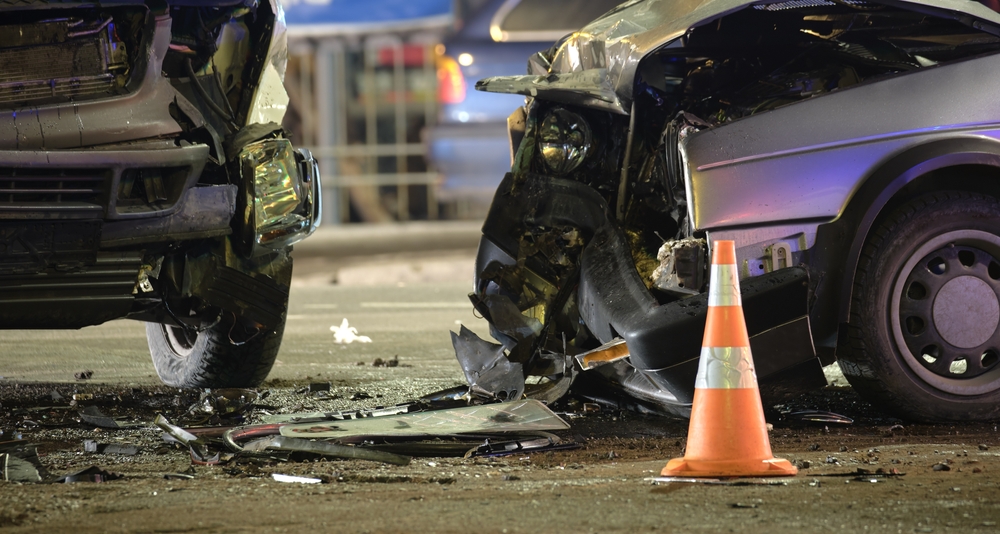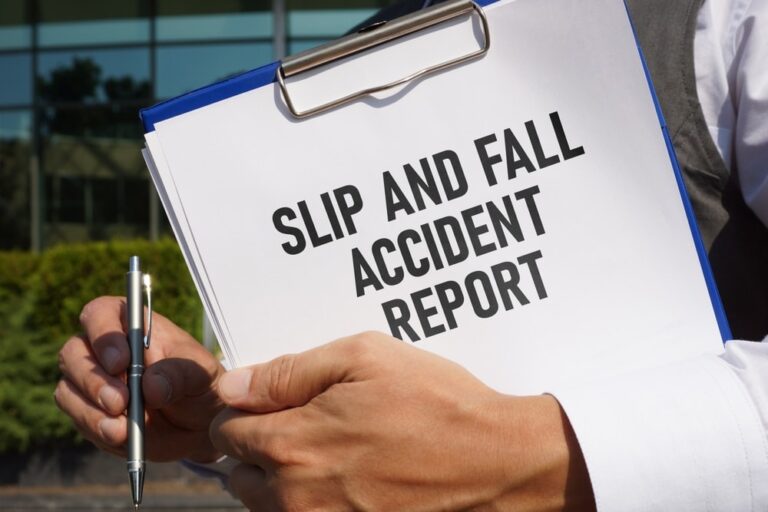Key Takeaways:
- Insurance companies may deny claims due to liability disputes, late reporting, coverage exclusions, or disputed medical treatment.
- Car accident injuries can include physical trauma, emotional distress, and long-term impacts like PTSD.
- Common causes of accidents include speeding, distracted or reckless driving, drunk driving, and driver fatigue.
- If your claim is denied, review the denial letter, gather documentation, consult a lawyer, and consider appeals or alternative dispute resolution.
- Experienced car accident attorneys can handle negotiations, file lawsuits if needed, and maximize your chance for fair compensation.
Insurance companies may deny a car accident claim for a variety of reasons. Some of the most common reasons for claim denials include liability disputes, where the insurance company denies that their insured caused the subject car accident. At other times, the insurance company may think that the accident victim is exaggerating their injuries or that particular medical treatment was unnecessary.
If an insurance company recently denied your car accident claim, you must speak with an experienced Baraboo car accident attorney in your area as quickly as possible. Your lawyer can take the necessary legal steps on your behalf, such as dealing with insurance company adjusters directly or filing a personal injury lawsuit in your case. Your attorney will do everything they can to secure the monetary recovery you need for your car accident injuries and losses.
Suffering Injuries in a Car Accident
Experiencing injuries in a car wreck is a harrowing ordeal that transcends the physical pain, extending into emotional and psychological realms. A collision’s sudden, violent nature can leave lasting scars, both visible and invisible. The immediate aftermath of a car accident will often include experiencing shock, disorientation, and an overwhelming surge of adrenaline that temporarily masks the true extent of injuries suffered.

The injuries that a car accident victim suffers can range from minor cuts and bruises to severe, life-altering trauma. Broken bones, whiplash, and concussions are typical consequences, each carrying its own set of challenges during the recovery process. The road to healing may involve surgeries, extensive rehabilitation, and rebuilding strength and mobility.
Beyond the physical toll, the emotional aftermath of a severe car crash can be equally daunting. Flashbacks, anxiety, and even post-traumatic stress disorder (PTSD) may manifest, reshaping the individual’s relationship with both driving and their own well-being. In some cases, an individual who suffers from PTSD may be afraid to operate a vehicle or ride in a car after their accident.
If you suffered physical or emotional injuries in a car accident that a negligent driver caused, you should speak with a skilled car accident lawyer in your area right away. Your lawyer can thoroughly investigate your accident circumstances and review your legal options.
Why do Car Accidents Typically Occur?
Car crashes occur for various reasons, but they usually result from some type of driver error or negligence. A driver is negligent when they behave unreasonably – usually by violating one or more traffic laws. Some of the specific causes of local traffic accidents include:
- Speeding, especially when taking into account the prevailing weather and traffic conditions
- Distracted driving, where a driver fails to observe the road or engages in activities like texting, calling, or using apps while behind the wheel, diverting their attention from the road
- Reckless driving, including tailgating other vehicles, weaving in and out of traffic, and ignoring traffic rules
- Running red traffic lights and stop signs, including failing to yield the right-of-way to other vehicles and pedestrians at traffic intersections
- Drunk and drugged driving often leads to compromised judgment, slower reaction times, and impaired coordination, making a driver more prone to collisions.
- Driver fatigue, where a driver experiences concentration and reaction time or falls utterly asleep at the wheel, subsequently losing control of their vehicle
If you suffered injuries in a traffic accident that a negligent driver caused, your lawyer can file the appropriate insurance claim on your behalf and deal with insurance company representatives. Furthermore, if the insurance company denies your claim, your attorney can take the necessary steps, such as filing a lawsuit in court, to pursue the financial recovery you need for your injuries.
Reasons Why Insurance Companies Deny Car Accident Claims
Following a car accident, the victim’s lawyer will typically deal with the insurance company for the at-fault driver. This type of insurance claim is called a third-party claim.

Insurance companies may deny a car accident claim for various reasons, often rooted in policy details, investigation findings, or legal considerations. Understanding these common reasons is crucial for individuals filing claims to ensure compliance with their insurance terms, increase the likelihood of a successful claim, and ultimately recover the monetary compensation they deserve for their car accident injuries. Some of the most common reasons for insurance company claim denials include:
- Late claim reporting – Failure to report an accident promptly can lead to a denial of claim. Insurance policies typically require immediate reporting to allow for timely investigation and assessment of damages in a car accident case.
- Coverage exclusions – Insurance policies often have specific exclusions, such as coverage limitations for certain types of accidents or vehicles. If the circumstances of the accident fall within these exclusions, the insurance company may deny the claim.
- Policy lapses – If the policyholder has not paid premiums and the policy has lapsed at the time of the accident, the insurance company may reject the claim. Continuous and up-to-date premium payments are necessary for an individual to maintain insurance coverage.
- Pre-existing property damage – If the insurance company determines that claimed property damage existed before the accident, they may deny the claim. Documenting the vehicle’s condition before the accident can help prevent such disputes.
- Uninsured or underinsured motorist coverage issues – If the at-fault party is uninsured or underinsured, the policyholder’s coverage for such incidents must be clearly outlined in the policy language. Failure to have appropriate coverage may result in a claim denial.
- Misrepresentation or fraud – Providing false information or engaging in fraudulent activities during claims-filing may lead to a denial of claims. Insurance companies thoroughly investigate claims, and any dishonesty can result in severe consequences.
- Delay in seeking medical treatment – Insurance companies may question the severity of injuries or damages if the claimant delays seeking medical attention after the accident. Timely medical evaluation is crucial for a credible claim.
- Frequent gaps in medical treatment – If significant gaps exist in the accident victim’s medical treatment, the insurance company may question the nature and severity of their injuries and deny their claim – or at least limit the monetary payout they offer.
If an insurance company denies your claim following a car accident, your personal injury lawyer can file a lawsuit on your behalf or file a bad faith insurance claim, depending upon your circumstances.
Steps You Can Take if the Insurance Company Denies Your Car Accident Case
If the insurance company denies your car accident claim, you must understand the reason for the denial and explore potential avenues for reconsideration or appeal. Those steps may include all of the following:
- Review the denial letter – Carefully examine the denial letter that the insurance company provides. It should outline the specific reasons for the denial and reference the relevant sections of your policy. Understanding the basis for denial is crucial for your next steps.
- Contact your insurance company right away (or have your attorney contact the insurance company) – Reach out to your insurance company to seek clarification on the denial. Ask for detailed information regarding the specific policy provisions or circumstances that caused the denial. This conversation can provide insights into whether the insurance company based the denial on a misunderstanding or a valid reason.
- Gather appropriate documentation – Collect all relevant documents related to the accident, your insurance policy, and communication with the insurer. This documentation may include the car accident police report, medical records, repair estimates, and any correspondence with the insurance company. Comprehensive documentation can strengthen your case during the appeals process.
- Consult with an attorney as quickly as possible – If the denial remains unresolved, consider seeking legal advice. An attorney experienced in insurance claims can review your case, assess the reasons for denial, and guide you on the best course of action to move forward with your case. They can also represent you in negotiations or future legal proceedings if necessary.
- File an appeal with the insurance company – Most insurance companies have an appeals process. Follow the specified procedures for filing an appeal, which often involves submitting additional documentation or a written statement explaining your position.
- Alternative dispute resolution (ADR) – Some insurance policies include provisions for alternative dispute resolution methods, such as mediation or arbitration. These processes can provide a less formal and less costly means of resolving disputes than pursuing a lawsuit in the state court system.
Litigating a Disputed Car Accident Case in Your State’s Court System
Litigating a disputed car accident claim in court is a complex and formal process that involves legal proceedings to resolve the disagreement between the parties involved. Some of the key steps involved in litigating a disputed car accident claim include:

- Consultation with an experienced car accident attorney – Before proceeding to court, you must consult an experienced attorney specializing in personal injury or car accident cases. An attorney can assess the merits of your case, advise you on the likelihood of success in court, and guide you through the legal process.
- Filing a lawsuit in the state court system – If efforts to settle the dispute outside of court have been unsuccessful, your attorney may recommend filing a lawsuit. This process involves submitting a formal complaint to the court outlining the details of the accident, the damages suffered, and the legal basis for your claim. Your attorney can then serve a copy of the lawsuit on the at-fault driver.
- Taking part in the discovery process – Both parties engage in the discovery process, when they exchange relevant information and evidence. This includes requesting documents, conducting depositions, and obtaining expert opinions. Discovery is essential for building a comprehensive case and understanding the strengths and weaknesses of each side.
- Submitting pretrial motions – Attorneys may file pretrial motions to address specific legal issues before the case ultimately goes to trial. These motions can involve requests to exclude certain evidence from trial, dismiss the case, or obtain a summary judgment based on the presented facts.
- Negotiations and settlement discussions – Throughout the litigation process, there may be opportunities for settlement discussions between the parties. Courts often encourage parties to explore settlement options to alleviate the burden on the legal system. Attorneys negotiate terms that both parties find acceptable to resolve the dispute.
- ADR – In some cases, the court may recommend or require mediation or another form of ADR. Mediation involves a neutral third party facilitating settlement negotiations between the parties to reach a mutually agreeable settlement.
- Trial preparation – As the trial date approaches, both sides engage in thorough trial preparation. This process includes finalizing witness lists, preparing exhibits, and refining legal arguments. Attorneys then work diligently to present a compelling case during the trial.
- Trial – The trial involves presenting evidence, examining witnesses, and making legal arguments in front of a judge or jury. Each side has the opportunity to present its case, cross-examine witnesses, and respond to opposing arguments.
- Verdict and judgment – The judge or jury delivers a verdict following a trial. If the court rules in favor of one party, it enters a judgment specifying the monetary compensation the accident victim will receive.
Successfully litigating a disputed car accident claim in court demands a thorough understanding of the legal system and the ability to navigate complex procedures. Having competent legal representation can go a long way in securing the monetary compensation you deserve for your accident-related losses.

Call a Knowledgeable Car Accident Attorney Today
If an insurance company recently denied your car accident claim, you must speak with experienced legal counsel as quickly as possible. You should never try to negotiate with the insurance company on your own. It’s best to avoid all contact with your insurance company at that point and let your attorney talk for you. Your attorney can determine your legal rights and options and take the necessary steps to pursue the monetary recovery you deserve for your accident-related losses. Best of all, your attorney can do all this for you while you focus on the most important thing: recovering from your injuries.
Never worry about upfront legal fees, as car accident cases are usually on a contingency basis. This means your case evaluation is free, and you only pay legal fees if your attorney gets compensation for you.




